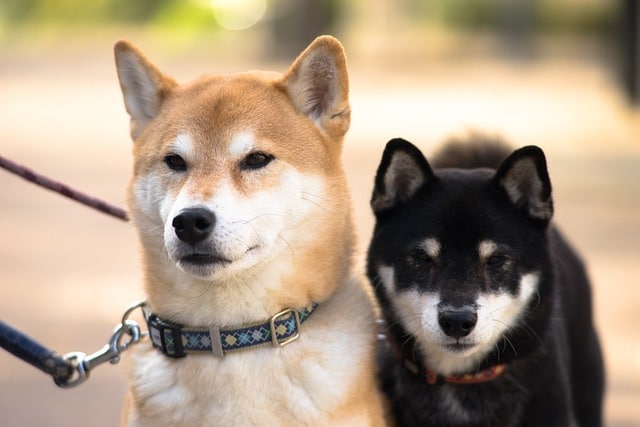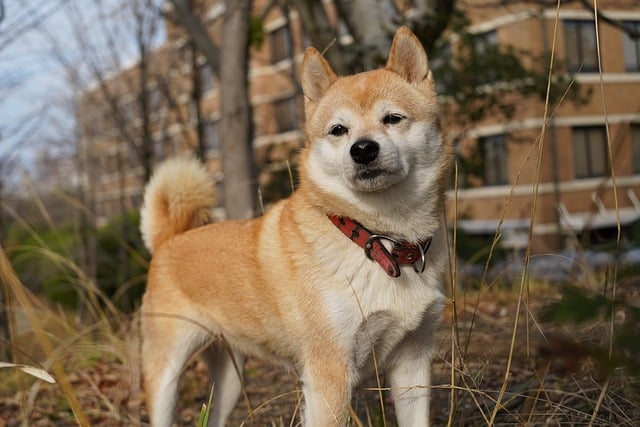Shiba Inus have skyrocketed in popularity in recent years, thanks to their adorable fox-like appearance, independent spirit, and strong personalities. Originating in Japan, the breed has become a favorite for many dog lovers worldwide. However, with their rise in fame, several myths have also emerged, leading to misunderstandings about the breed. Let’s debunk some of these misconceptions, helping you better understand the true nature of Shiba Inus.
1. Myth: Shiba Inus are aggressive dogs
One of the most common myths surrounding Shiba Inus is that they are aggressive by nature. This misconception often stems from their assertive personalities, which can be misunderstood by those unfamiliar with the breed.
Reality: Shiba Inus are not naturally aggressive, but they are independent and often aloof. They have a strong sense of self, which can make them appear standoffish or even dominant in certain situations. However, aggression is not a breed trait. Like any dog, a Shiba Inu’s behavior largely depends on training, socialization, and their environment. Early socialization is key in ensuring they are comfortable around people and other dogs.
Shibas have a strong prey drive, and this can sometimes be mistaken for aggression. However, this instinct is more about chasing small animals rather than aggression toward humans or other dogs. With proper training and socialization, they can be wonderful companions, both for humans and other pets.
2. Myth: Shiba Inus are impossible to train
Shiba Inus have a reputation for being difficult to train, leading many to believe that the breed is untrainable or stubborn. This myth can discourage potential owners from considering a Shiba Inu for fear of ending up with an unruly dog.
Reality: While Shiba Inus are indeed independent and have a mind of their own, they are far from impossible to train. The key lies in understanding their unique personality. Unlike breeds that are eager to please their owners, Shibas are more inclined to do things their own way. This doesn’t mean they are untrainable—it simply means that training a Shiba requires patience, consistency, and creativity.
Positive reinforcement and short, engaging training sessions work best with this breed. They need to understand that following commands benefits them, rather than doing so just to make their owners happy. While training may take a bit longer compared to more obedient breeds, it is entirely achievable with persistence.
3. Myth: Shiba Inus are not affectionate
Another common misconception is that Shiba Inus are cold or distant dogs. Their aloof nature and independence have led many to believe that they don’t bond with their owners or enjoy affection.
Reality: Shiba Inus are affectionate, but in their own unique way. They are not typically the type of dog that will seek out constant physical affection or be a “velcro” dog. However, this doesn’t mean they don’t love their owners. Shibas are selective about when and how they show affection, but once they form a bond with someone, it’s deep and lasting.
They tend to be more reserved, preferring to show their affection through companionship rather than overt displays of affection like licking or cuddling. Shiba Inus often follow their owners from room to room, showing loyalty and love in subtle ways. While they may not constantly demand attention, their loyalty and devotion are undeniable once they trust you.
4. Myth: Shiba Inus are hypoallergenic
Due to their short coats and clean appearance, some people believe that Shiba Inus are hypoallergenic and a good option for those with allergies.
Reality: Shiba Inus are not hypoallergenic. In fact, they are known to shed quite a bit. They have a double coat, with a thick undercoat that sheds heavily twice a year, during a period called “blowing coat.” This shedding can trigger allergic reactions in sensitive individuals.
Although Shibas tend to be clean dogs, grooming themselves like cats, their shedding can be significant. Regular grooming, including brushing and bathing, can help manage the shedding, but it won’t eliminate allergens entirely. If you have dog allergies, it’s important to spend time around a Shiba Inu before deciding to bring one into your home to see how your body reacts.
5. Myth: Shiba Inus are low-maintenance pets
Shiba Inus’ small size and independent nature often lead people to believe that they are easy, low-maintenance pets. Some assume that because they are not overly clingy or needy, they don’t require much attention or care.
Reality: Shiba Inus are far from low-maintenance. While they may not demand constant attention like some breeds, they require a significant amount of mental and physical stimulation. Shibas are intelligent, active dogs that need regular exercise to stay healthy and prevent behavioral issues. Boredom can lead to destructive behaviors like chewing or escaping, as Shibas are notorious escape artists.
In addition to exercise, Shiba Inus require consistent training, socialization, and grooming. Their shedding can be quite intense, and keeping their coats healthy requires regular brushing. They are also prone to certain health issues, such as hip dysplasia and patellar luxation, meaning regular veterinary care is essential.
Owning a Shiba Inu requires dedication and commitment. They thrive in environments where they receive ample attention, training, and exercise, making them a demanding yet rewarding breed to care for.

Shiba Inus are unique, spirited dogs that don’t fit into the typical mold of a companion animal. Their independence and strong personalities are both their charm and their challenge. While they may not be the best fit for every household, understanding their true nature—beyond the myths—can help you decide if they are the right breed for you.
Dispelling these myths is crucial for potential owners to understand that Shiba Inus, while independent and sometimes challenging, are loyal, intelligent, and affectionate in their own way. With proper training, socialization, and care, they can make incredible companions for those who appreciate their unique characteristics.

 Toledo, United States.
Toledo, United States.